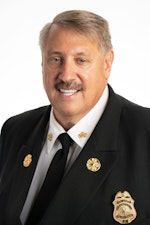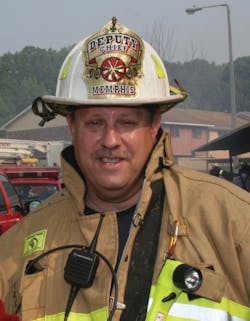Don’t you wish you could write a book about the stuff they don't teach you at the fire academy or in paramedic school? I’m referring to those bits of information that some people call “tricks of the trade.”
These are lessons you will learn on the job that you would never find in a textbook – and of those lessons can accumulate over the course of a career. You almost wish someone had told you about them before you walked out the door of the school.
I am sure you can come up with some of your own “tricks,” but I have compiled a pretty good list, some of which I will discuss here.
Keep a log
One of the first things you should do on the first day on the job is to start a log of all your calls. If you’re a computer whiz, keep the list electronically. It does not have to be anything fancy, but something in which you can record the date, time, address and type of call for each alarm you answer. If a patient is involved, you can write down the person’s name. If there is of anything of significance related to the call, you can write down a few notes of what you found to be interesting and noteworthy.
I wish I had done this over the course of my career. I did it for the first year on the job, but for some reason I stopped. I kept that log book for years and now I cannot find it in my house. Maybe one day it will show up when I lift a box or open a drawer and suddenly find it.
A firefighter/paramedic with whom I worked in Memphis, TN, kept a very detailed log of all his calls and good notes on significant calls. In his eight-year career, he had already logged more than 8,000 calls.
If you keep a log of all your calls, it will one day be interesting to look back at the course of your career. When you retire, you can look back at some of your most significant calls; how many fires you went on; how many auto accidents you responded to; or how many shootings you handled.
More importantly, if there was trouble on a call, you will have some notes that you can refer back to if you are sued or if you must testify in court. Lawsuits and court cases usually do not come the next week after a call. It can be years later when someone files a lawsuit or a criminal matter goes to trial. Unless you have notes you can refer back to, you will be challenged to remember the call.
There are all kinds of “tricks of the trade” when it comes to street operations. For example, whenever going on a call where I had to enter a residence, I always looked for those little worn paths in front of the fence of a house or if I had to go into the residence through the backyard, I also looked for those little worn paths in the rear of the house. That little worn path always warned me that a dog resided at the home. Whether the dog was friendly or not was not something I tried to guess. I assumed every dog was mean and would bite unless proven otherwise. By looking for the worn path, I would never be surprised if a dog suddenly appeared.
Most of what I learned on my own, and not in a textbook, dealt with my safety and did not always have to do with dogs. For example, I would never leave a pen sticking out of my shirt pocket. You could be dealing with a patient who had psychiatric disorder who might suddenly become violent. If they become violent and a scuffle ensues, that pen could be used as a weapon. And I would never wear a tie-on tie. A patient could grab the tie and use it to whip me around. I always wore a clip-on tie. That way, if anyone grabbed it, it would come off.
Another street trick I learned that no instructor ever taught me in a classroom was what to look for when I came upon a shooting victim. It was simple. If you found shell casings lying around the victim, you knew the patient was shot with an automatic or semi-automatic weapon. If there are no shell casings, the patient was shot with a revolver. If the patient is shot with an automatic or semi-automatic weapon, chances are they were shot multiple times and probably the injuries are more serious.
There are all kinds of tricks of the trade that you have never been taught while sitting in a classroom or learned by reading a book. What is important is that after you learn some trick of the trade, share it with those coming up behind you. Maybe some trick of the trade that you share will one day save their life.
For more news and training on EMS, visit http://EMSWorld.com/.

Gary Ludwig
GARY LUDWIG has served in three fire departments over his career: St. Louis, Memphis, and Champaign, IL. His fire, EMS and rescue career spanned a total of 46 years, and he has been a paramedic for over 44 years. Ludwig served as president of the International Association of Fire Chiefs in 2019-20. He has a Master’s degree in Business and Management, has written over 500 articles for professional fire and EMS publications and is the author of seven books.
Connect with Gary
Email: [email protected]
Facebook: Gary Ludwig
Twitter: @ChiefGaryLudwig
Website: garyludwig.com






